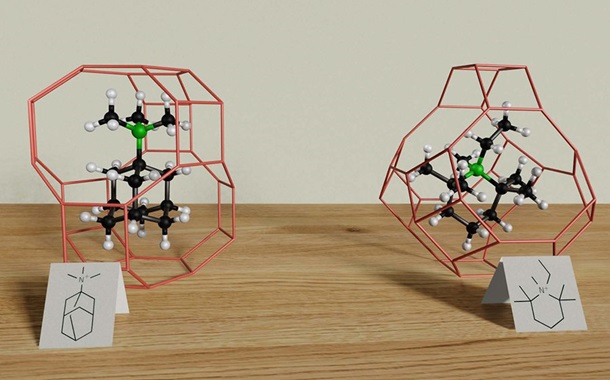Development of a Technique for Discrete-Logical Decision-Making in Medical Information Systems
Downloads
Doi:10.28991/HIJ-2024-05-04-010
Full Text:PDF
Downloads
Malmir, B., Amini, M., & Chang, S. I. (2017). A medical decision support system for disease diagnosis under uncertainty. Expert Systems with Applications, 88, 95–108. doi:10.1016/j.eswa.2017.06.031.
Wan, W., Xu, J., Zeng, Q., Pan, L., & Sun, W. (2023). Development and Evaluation of Intelligent Medical Decision Support Systems. Academic Journal of Science and Technology, 8(2), 22–25. doi:10.54097/ajst.v8i2.14713.
Harada, T., Miyagami, T., Kunitomo, K., & Shimizu, T. (2021). Clinical decision support systems for diagnosis in primary care: A scoping review. International Journal of Environmental Research and Public Health, 18(16), 8435. doi:10.3390/ijerph18168435.
Mahfouf, M., Abbod, M. F., & Linkens, D. A. (2001). A survey of fuzzy logic monitoring and control utilisation in medicine. Artificial intelligence in medicine, 21(1-3), 27-42. doi:10.1016/S0933-3657(00)00072-5.
Ahmadi, H., Gholamzadeh, M., Shahmoradi, L., Nilashi, M., & Rashvand, P. (2018). Diseases diagnosis using fuzzy logic methods: A systematic and meta-analysis review. Computer Methods and Programs in Biomedicine, 161, 145–172. doi:10.1016/j.cmpb.2018.04.013.
Steen, A., & Benzmüller, C. (2024). Challenges for Non-Classical Reasoning in Contemporary AI Applications. Kunstliche Intelligenz, 38, 7-16. doi:10.1007/s13218-024-00855-8.
Boulila, W., Farah, I. R., & Hussain, A. (2018). A novel decision support system for the interpretation of remote sensing big data. Earth Science Informatics, 11(1), 31–45. doi:10.1007/s12145-017-0313-7.
Kose, U., Deperlioglu, O., Alzubi, J., & Patrut, B. (2021). Deep Learning for Medical Decision Support Systems. Studies in Computational Intelligence. Springer, Singapore. doi:10.1007/978-981-15-6325-6.
Todd, P., & Benbasat, I. (1999). Evaluating the Impact of DSS, Cognitive Effort, and Incentives on Strategy Selection. Information Systems Research, 10(4), 356–374. doi:10.1287/isre.10.4.356.
Chen, Z., Liang, N., Zhang, H., Li, H., Yang, Y., Zong, X., Chen, Y., Wang, Y., & Shi, N. (2023). Harnessing the power of clinical decision support systems: Challenges and opportunities. Open Heart, 10(2), 2432. doi:10.1136/openhrt-2023-002432.
Schaaf, J., Sedlmayr, M., Schaefer, J., & Storf, H. (2020). Diagnosis of Rare Diseases: a scoping review of clinical decision support systems. Orphanet Journal of Rare Diseases, 15(1), 263. doi:10.1186/s13023-020-01536-z.
Sutton, R. T., Pincock, D., Baumgart, D. C., Sadowski, D. C., Fedorak, R. N., & Kroeker, K. I. (2020). An overview of clinical decision support systems: benefits, risks, and strategies for success. NPJ Digital Medicine, 3, 17. doi:10.1038/s41746-020-0221-y.
Almazroi, A. A., Aldhahri, E. A., Bashir, S., & Ashfaq, S. (2023). A Clinical Decision Support System for Heart Disease Prediction Using Deep Learning. IEEE Access, 11, 61646–61659. doi:10.1109/ACCESS.2023.3285247.
Miyachi, Y., Ishii, O., & Torigoe, K. (2023). Design, implementation, and evaluation of the computer-aided clinical decision support system based on learning-to-rank: collaboration between physicians and machine learning in the differential diagnosis process. BMC Medical Informatics and Decision Making, 23(1), 26. doi:10.1186/s12911-023-02123-5.
Chen, M., Cui, D., Haick, H., & Tang, N. (2024). Artificial Intelligence"Based Medical Sensors for Healthcare System. Advanced Sensor Research, 3(3), 2300009. doi:10.1002/adsr.202300009.
Nilius, H., Cuker, A., Haug, S., Nakas, C., Studt, J. D., Tsakiris, D. A., Greinacher, A., Mendez, A., Schmidt, A., Wuillemin, W. A., Gerber, B., Kremer Hovinga, J. A., Vishnu, P., Graf, L., Kashev, A., Sznitman, R., Bakchoul, T., & Nagler, M. (2023). A machine-learning model for reducing misdiagnosis in heparin-induced thrombocytopenia: A prospective, multicenter, observational study. EClinicalMedicine, 55, 101745. doi:10.1016/j.eclinm.2022.101745.
Tatarkanov, A., Lampezhev, A., Polezhaev, D., & Tekeev, R. (2022). Suboptimal Biomedical Diagnostics in the Presence of Random Perturbations in the Data. International Journal of Engineering Trends and Technology, 70(11), 129–137. doi:10.14445/22315381/IJETT-V70I11P213.
Pumplun, L., Fecho, M., Wahl, N., Peters, F., & Buxmann, P. (2021). Adoption of machine learning systems for medical diagnostics in clinics: Qualitative interview study. Journal of Medical Internet Research, 23(10), 29301. doi:10.2196/29301.
Tatarkanov, A. A., Umyskov, A. A., Tekeev, R. K., & Kuklin, V. Z. (2022). Model Development of Universal Hardware and Software Module for Medical Information System. International Journal of Emerging Technology and Advanced Engineering, 12(10), 136–146. doi:10.46338/ijetae1022_15.
Kukhtevich, I. I., Goryunova, V. V., Goryunova, T. I., & Zhilyaev, P. S. (2020). Medical Decision Support Systems and Semantic Technologies in Healthcare. Russian Conference on Digital Economy and Knowledge Management, 370–375. doi:10.2991/aebmr.k.200730.068.
Andrade, S. E., Kahler, K. H., Frech, F., & Chan, K. A. (2006). Methods for evaluation of medication adherence and persistence using automated databases. Pharmacoepidemiology and Drug Safety, 15(8), 565–574. doi:10.1002/pds.1230.
Knapič, S., Malhi, A., Saluja, R., & Främling, K. (2021). Explainable Artificial Intelligence for Human Decision Support System in the Medical Domain. Machine Learning and Knowledge Extraction, 3(3), 740–770. doi:10.3390/make3030037.
Groenier, M., Pieters, J. M., Witteman, C. L. M., & Lehmann, S. R. S. (2014). The effect of client case complexity on clinical decision-making. European Journal of Psychological Assessment, 30(2), 150–158. doi:10.1027/1015-5759/a000184.
Tyapkin, V. N., Ishchuk, I. N., Kabulova, E. G., Semenov, M. E., & Meleshenko, P. A. (2016). Singular spectral analysis in filtration of noisecontaminated signals of pseudolite navigation. Indian Journal of Science and Technology, 9(46), 107567. doi:10.17485/ijst/2016/v9i46/107567.
Starke, S. D., & Baber, C. (2020). The effect of known decision support reliability on outcome quality and visual information foraging in joint decision-making. Applied Ergonomics, 86, 103102. doi:10.1016/j.apergo.2020.103102.
Bussone, A., Stumpf, S., & O'Sullivan, D. (2015). The role of explanations on trust and reliance in clinical decision support systems. Proceedings - 2015 IEEE International Conference on Healthcare Informatics, 160–169. doi:10.1109/ICHI.2015.26.
Yan, H., Jiang, Y., Zheng, J., Peng, C., & Li, Q. (2006). A multilayer perceptron-based medical decision support system for heart disease diagnosis. Expert Systems with Applications, 30(2), 272-281. doi:10.1016/j.eswa.2005.07.022.
Vinodh, S., & Balaji, S. R. (2011). Fuzzy logic based leanness assessment and its decision support system. International Journal of Production Research, 49(13), 4027–4041. doi:10.1080/00207543.2010.492408.
Akishev, K. M., Zhamangarin, D. S., Zhardemkyzy, S., Murzabekov, T. T., Nurgaliyev, A. Y., & Zhiganbayev, M. Y. (2023). Application of the Principle of Special States in Developing Simulation Model. News of the National Academy of Sciences of the Republic of Kazakhstan, Series of Geology and Technical Sciences, 1(457), 33–44. doi:10.32014/2023.2518-170X.257.
Mark, D. B., & Wong, J. B. (2005). Decision-making in clinical medicine. Harrisons Principles of Internal Medicine, 16(1), 6.
Coussement, K., Benoit, D. F., & Antioco, M. (2015). A Bayesian approach for incorporating expert opinions into decision support systems: A case study of online consumer-satisfaction detection. Decision Support Systems, 79, 24–32. doi:10.1016/j.dss.2015.07.006.
Barbini, E., Manzi, P., & Barbini, P. (2013). Bayesian Approach in Medicine and Health Management. Current Topics in Public Health, IntechOpen, London, United Kingdom. doi:10.5772/52402.
Delen, D., & Sharda, R. (2008). Artificial Neural Networks in Decision Support Systems. Handbook on Decision Support Systems 1. Springer, Heidelberg, Germany. doi:10.1007/978-3-540-48713-5_26.
Haque, M. T., & Kashtiban, A. M. (2005). Application of neural networks in power systems; A review. Proceedings - WEC 05: Fourth World Enformatika Conference, 6, 53–57.
Liu, Y., Ren, Z. H., Li, D. M., Tian, X. K., & Lu, Z. N. (2006). The research of precision irrigation decision support system based on genetic algorithm. Proceedings of the 2006 International Conference on Machine Learning and Cybernetics, 2006, 3123–3127. doi:10.1109/ICMLC.2006.258403.
Ocak, H. (2013). A medical decision support system based on support vector machines and the genetic algorithm for the evaluation of fetal well-being. Journal of Medical Systems, 37(2), 1-9. doi:10.1007/s10916-012-9913-4.
Babcock, B., Babu, S., Datar, M., Motwani, R., & Widom, J. (2002). Models and issues in data stream systems. Proceedings of the ACM SIGACT-SIGMOD-SIGART Symposium on Principles of Database Systems, 1–16. doi:10.1145/543613.543615.
Tatarkanov, A. A., Alexandrov, I. A., Chervjakov, L. M., & Karlova, T. V. (2022). A Fuzzy Approach to the Synthesis of Cognitive Maps for Modeling Decision Making in Complex Systems. Emerging Science Journal, 6(2), 368–381. doi:10.28991/ESJ-2022-06-02-012.
Davis, R. (1977). A DSS for diagnosis and therapy. ACM SIGMIS Database, 8(3), 58–72. doi:10.1145/1017583.1017597.
Dujmovič, J. J. (2007). Continuous preference logic for system evaluation. IEEE Transactions on Fuzzy Systems, 15(6), 1082–1099. doi:10.1109/TFUZZ.2007.902041.
Jenny, M. A., Hertwig, R., Ackermann, S., Messmer, A. S., Karakoumis, J., Nickel, C. H., & Bingisser, R. (2015). Are mortality and acute morbidity in patients presenting with nonspecific complaints predictable using routine variables? Academic Emergency Medicine, 22(10), 1155–1163. doi:10.1111/acem.12755.
Araz, O. M., Olson, D., & Ramirez-Nafarrate, A. (2019). Predictive analytics for hospital admissions from the emergency department using triage information. International Journal of Production Economics, 208, 199–207. doi:10.1016/j.ijpe.2018.11.024.
Graham, B., Bond, R., Quinn, M., & Mulvenna, M. (2018). Using Data Mining to Predict Hospital Admissions from the Emergency Department. IEEE Access, 6, 10458–10469. doi:10.1109/ACCESS.2018.2808843.
Zlotnik, A., Alfaro, M. C., Perez, M. C. P., Gallardo-Antolin, A., & Martinez, J. M. M. (2016). Building a Decision Support System for Inpatient Admission Prediction with the Manchester Triage System and Administrative Check-in Variables. CIN - Computers Informatics Nursing, 34(5), 224–230. doi:10.1097/CIN.0000000000000230.
- This work (including HTML and PDF Files) is licensed under a Creative Commons Attribution 4.0 International License.





















